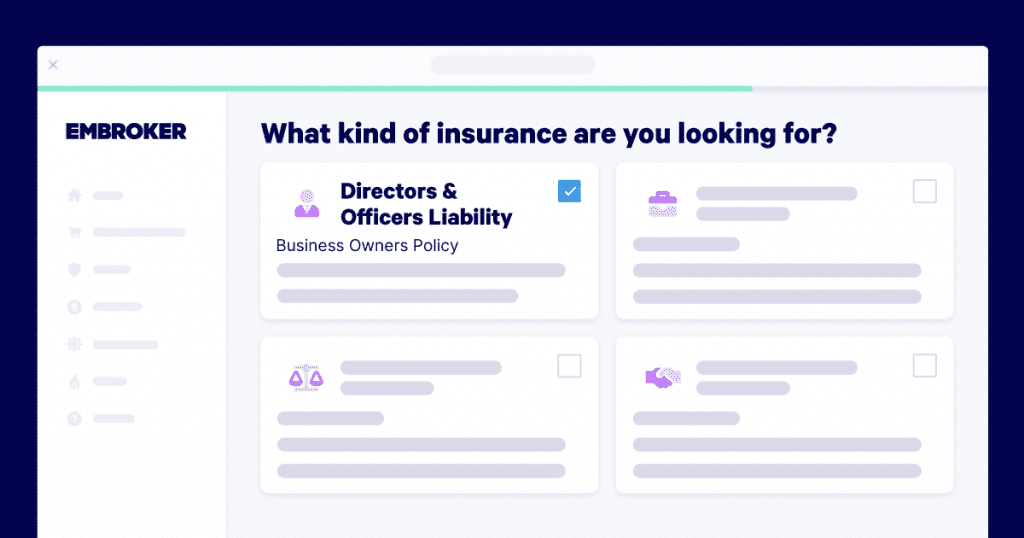What is Miscellaneous Professional Liability Insurance?

Everyone makes mistakes. Sure, some slip-ups may be considered minor missteps–like when you accidentally forget your card at a restaurant or mix up the dates of your significant other’s work event. But in business, even the most reasonable mistake can become a nightmare. That’s what insurance policies like miscellaneous professional liability are for.
When you own your own business or offer professional services to clients, you have to count on things not always going to plan, specifically in the realm of customer satisfaction. And today, a bad review isn’t the only way for a disgruntled patron to get their point across. No, people are ready and willing to sue, even if you didn’t intend to do anything wrong.
All that being said, there is a way to protect yourself and your business from these less-than-ideal situations: insurance can help. But you’ll want to have the right plan and coverage. General Business policies might not cover lawsuits based on internal error or an inability to provide services, but Miscellaneous Professional Liability Insurance can. Check it out.
What is Miscellaneous Professional Liability Insurance?
Miscellaneous Professional Liability or MPL Insurance offers protection from financial loss that a business or professional individual could incur as a result of a lawsuit. Also referred to as Errors and Omissions or Malpractice Insurance throughout some industries, these policies can help cover legal fees. A customer who feels like you have breached or not delivered on a contract of services can sue for an act, error, omission, negligence, or breach of duty in the professional services provided.
Imagine you enter into a contract with a client to offer a service that doesn’t meet their expectations. Even if you think you have, they can still claim that you did not deliver on your promise–even if their interpretation is skewed. While you may not be in the wrong, this customer can still sue and you’ll incur those legal fees even if the case doesn’t resolve in their favor. Not to mention, have to spend time defending the case instead of on your business.
Who Should Get Miscellaneous Professional Liability Insurance?
Practically anyone who owns a business, offers professional services or acts as a consultant could benefit from having a MPL policy. If you have the potential to upset or disappoint a client, you could use this kind of policy–especially if the services you provide have the ability to vary from person to person. Not to mention, if the service or advice you charge a client for could potentially cost that client money in losses or potential lawsuits against them.
For example, if you’re an IT consultant and your client suffers a data breach and the software you recommended did not protect their systems adequately enough, you could be held responsible. Essentially, if your industry offerings require specific expertise, General Liability policies won’t offer protection against malpractice, negligence, or misrepresentation claims that stem from their professional practices.
Industry-Tailored Professional Liability
To effectively manage the risks associated with different professions, miscellaneous professional liability is often broken up into specific categories based on the nature of the professional services being provided. This categorization allows for tailored coverage that addresses the unique risks and challenges faced by professionals in each field.
The categorization of miscellaneous professional liability insurance is driven by the understanding that different professions have distinct areas of expertise, responsibilities, and potential sources of liability.
Here are some examples of industries with specific professional liability needs, and their coverages:
Legal Professional Liability Insurance: This type of insurance is tailored for attorneys and law firms, covering claims arising from errors, omissions, negligence, or breach of professional duty in the practice of law.
Medical Professional Liability Insurance: Also known as medical malpractice insurance, it provides coverage to healthcare professionals, including doctors, nurses, dentists, and other medical practitioners, for claims related to medical errors, negligence, or improper treatment.
Accountant Professional Liability Insurance: Accountants, auditors, and accounting firms can obtain this coverage to protect themselves against claims arising from errors, inaccuracies, or professional negligence in their financial services and advice.
Technology Professional Liability Insurance: Also known as errors and omissions, this coverage is designed for technology companies, IT consultants, software developers, and other technology professionals. It protects against claims resulting from errors, omissions, or failure to deliver promised services or products.
Real Estate Professional Liability Insurance: This coverage is for real estate agents, brokers, property managers, and appraisers. It provides protection against claims related to errors, misrepresentation, or negligence in property transactions or management.
Do States Legally Require Miscellaneous Professional Liability?
While most states don’t require businesses to carry Miscellaneous Professional Liability Insurance, some may require special licensing to practice professionally, and acquiring that license requires that you have an MPL policy. Some government or client contracts may also require that you carry MPL in order to work in certain industries. Below are a few common professions that have some kind of requirement:
Healthcare: Some states, such as Colorado, Massachusetts, and New Jersey, require practicing physicians to have Miscellaneous Professional Liability Insurance. However, in California physicians are only required to carry a professional liability insurance policy if they perform outpatient surgery. On the other hand, therapists and counselors across various states are not typically required to carry malpractice insurance.
Lawyers: While not required in order to offer professional services, some states require that attorneys notify their clients if they do not have a certain level of coverage. Ohio and Pennsylvania require attorneys to either carry malpractice insurance with policy limits of $100,000 per claim and $300,000 annual aggregate, or to notify clients in writing if they don’t have this coverage. Texas requires coverage of $100,000 per claim, or to have this same amount set aside as a self-insurance contingency fund. And Oregon requires attorneys to obtain this coverage through a state fund.
Real estate professionals: MPL is not required across the US, but in the state of Nebraska, real estate professionals will require that a State Program Administrator certify to the Real Estate Commission an applicant for a new license (or renewal) has proof of Errors and Omissions insurance.
Insurance professionals: Similarly not required for most insurance professionals across the US, Rhode Island, insurance producers must carry an E&O policy with a $250,000 per-occurrence limit and a $500,000 aggregate limit.
Ultimately though, just because you can get away with not having it, it doesn’t mean you should. A Miscellaneous Professional Liability policy will protect you in ways that a General Liability plan can’t. And even if you provide perfection, it doesn’t mean the client will see it that way.
Switching insurance providers is easy. Let us show you.
Upload your policy and let us get the process started.
Upload Your Policy


